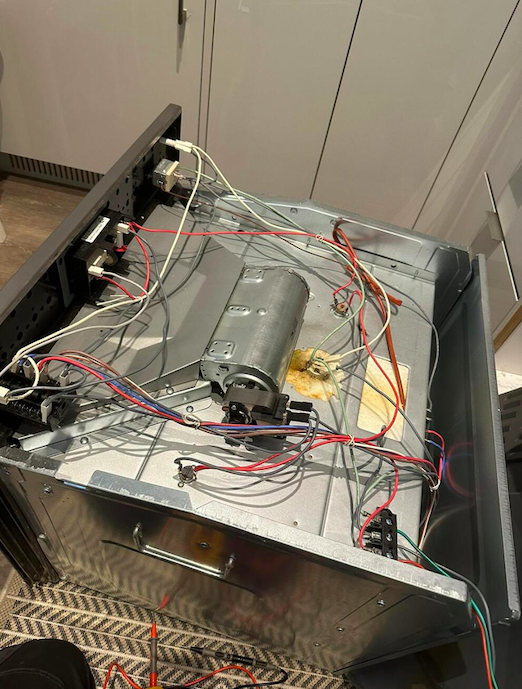If you own major home appliances, chances are you will eventually need an appliance repair. Issues like refrigerators failing to cool properly, dishwashers leaking water, and dryers taking too long to dry clothing are common. When your essential appliances break down, it causes major inconveniences and disruptions to your household routines.
Knowing how to diagnose issues, evaluate repair options, and hire qualified appliance repair technicians can help you get your appliances up and running again quickly when problems arise. This guide provides a comprehensive overview of appliance repair services.
Introduction to Appliance Repair
Appliance repair is the process of troubleshooting problems with household appliances and fixing the issues. Appliances most commonly needing repairs include:
- Refrigerators – Fail to cool properly, leak water, make strange noises
- Dishwashers – Leak water, fail to wash dishes properly, draining issues
- Washing Machines – Won’t spin, drain or fill with water correctly
- Dryers – Fail to heat properly, take too long to dry clothes, lint buildup
- Ovens/Ranges – Heating issues, faulty controls or buttons, cracked glass doors
Hiring trained appliance repair technicians to service these appliances when they break down provides several benefits:
- Correct diagnosis of the problem
- Access to repair tools, testing equipment, and replacement parts
- Technical expertise to make repairs properly and safely
- Warranty and guarantee on work performed
Trying to fix a broken appliance yourself without proper training can result in further damage, as well as potential hazards from electric and gas components.

Major Home Appliances and Common Problems
Understanding the most frequent issues with major home appliances can help you identify when a repair is needed.
Refrigerators
Refrigerators are subject to several common problems:
- Not cooling properly – If food is spoiling too quickly, the fridge may need freon added or an evaporator fan replaced.
- Leaking water – Causes include clogged defrost drains, failed water valves or door seals. Leaks can damage the flooring.
- Unusual noises – Buzzing, humming or loud clicking sounds could signal issues with the compressor, evaporator fan or refrigerant levels.
Ovens and Ranges
Oven and stove repairs often involve:
- Not heating properly – Faulty heating elements, broken thermostats or defective control boards can prevent proper heating.
- Burning food – Inaccurate oven temperatures result in burnt dishes. This can indicate problems with the thermostat or temperature sensor.
- Faulty buttons/controls – If the oven won’t turn on or buttons are unresponsive, control boards may need replacement.
- Cracked glass doors – Damage from impact or slamming can cause glass doors to crack. Doors then need replacement.
Dishwashers
Some of the most frequent dishwasher repairs involve:
- Not cleaning properly – Clogged or dirty filters prevent effective washing. Weak spray arm action can also limit cleaning.
- Leaking water – Leaks often come from failed door gaskets, cracked tub walls, or defective water inlet valves.
- Clogged drains – Food particles can get trapped and block the drain pump or hose, preventing drainage.
Washing Machines
Problems with washing machines often include:
- Won’t spin, drain or fill – Defective timers, broken drive motors or belts, or clogged pumps lead to these issues.
- Leaking water – Failed hoses, gaskets and valves cause washing machine leaks. Leaks should be fixed ASAP to avoid damage.
- Off balance loads – Uneven distribution of clothes in the tub can cause loud banging during the spin cycle.
Dryers
Some main dryer repair needs include:
- Not heating properly – Gas valves, igniters, thermal fuses or heating elements may require replacement.
- Taking too long to dry – Clogged vents and lint buildup reduce airflow and extend drying time.
- Lint buildup – Excess lint accumulation creates a fire hazard. Regularly cleaning ducts and vents is needed.
Diagnosing Appliance Issues
Determining the exact problem with a malfunctioning appliance is the first step in the repair process. Here are tips for diagnosing common appliance issues:
Look for signs of failure – Visually inspecting and operating the appliance reveals many issues – water leaks, unusual noises, lights flashing, smoke, etc.
Narrow down the problem – When a machine stops working correctly, isolate which part or system is involved – the motor, timer, heating element, etc.
Test components – Using multimeters, thermometers and other testing tools helps pinpoint faulty parts. Technicians can perform detailed component testing.
Consider age and repair history – Older appliances are more prone to wear-and-tear failures. Previous repair logs also provide insight into vulnerabile components.
Accurately diagnosing appliance problems requires expertise technicians have from training and hands-on experience. Descriptions of symptoms and detailed testing help repair pros determine what is wrong and what parts and tools will be needed for repair.
The Appliance Repair Process
Repairing a home appliance involves several key steps:
Initial inspection and diagnosis – The technician thoroughly examines the appliance and its parts to diagnose what is wrong. Testing helps confirm.
Providing a repair estimate – Once the issue is identified, the technician provides a quote for parts, labor and any other repair costs.
Ordering parts – Many repairs require ordering manufacturer-approved replacement parts that match the make and model.
Repair and testing – The technician replaces any defective parts and does necessary adjustments. Testing ensures the repair is complete.
Cleanup and follow-up – All work areas are cleaned and any packaging and old parts are removed. The customer reviews the completed work.
Reputable companies follow standardized processes and provide invoices detailing the work performed and parts used. Many technicians offer warranties on repairs ranging from 90 days to a year.
DIY vs Professional Repair
Some homeowners consider trying to fix appliances themselves rather than hiring a professional appliance repair company. Here are some pros and cons of DIY appliance repair:
Pros of DIY Repair:
- Saves money on labor costs
- Convenient for simple fixes like clearing clogs or lint
- Satisfaction of troubleshooting issues yourself
Cons of DIY Repair:
- Lack technical skills of pros
- Could overlook root cause and cause further damage
- Risk electrical and gas hazards and injury
- Limited access to parts, tools and testing equipment
Benefits of Professional Repair:
- Higher success fixing issues long-term
- Access to proper diagnostic tools to find real problem
- Avoid dangers – electric shock, gas leaks, freon, sharp edges, etc.
- Right parts on hand rather than multiple trips to store
- Warranties and guarantees for work performed
Overall, professional repair is best for problems involving disassembly, diagnostics, or safety risks. Only tackle basic cleaning and maintenance yourself.
Hiring a Reputable Appliance Repair Company
Choosing the right appliance repair technician is key to getting your appliance fixed properly. Here are tips for selecting a quality company:
Look for proper certifications – Technicians should have training credentials from manufacturers or trade schools.
Check reviews and complaints – Online reviews, BBB ratings, and word-of-mouth provide insight into quality.
Ask about experience – Look for companies with technicians who have many years of appliance repair experience.
Get several estimates – Contact 2-3 companies and compare approaches, pricing, parts needed and warranties.
Confirm licensing and insurance – Reputable companies have proper licenses and liability insurance coverage.
Get guarantees – Many companies offer warranties on parts and labor ranging from 90 days to 1 year.
Avoid companies that seem vague on diagnostics, push for fast unneeded repairs, demand payment upfront, or seem evasive. Taking time to vet providers helps avoid shoddy work or financial risks.
Appliance Repair Costs
Appliance repair costs depend on a few key factors:
- Type of appliance – More complex appliances cost more to repair
- Parts needed – Cost of replacement parts, which varies by brand, age, availability
- Extent of labor – Simple repairs take less time than complex disassembly or rebuilds
- Technician hourly rate – Varies based on market rates and company overhead
Here are some typical price ranges for common repairs:
- Refrigerator repair – $200 – $450
- Oven repair – $150 – $350
- Washer repair – $180 – $350
- Dryer repair – $150 – $300
- Dishwasher repair – $150 – $300
Ways to potentially lower appliance repair costs:
- Do easier access repairs yourself like clearing drain pumps
- Negotiate rates with companies to avoid peak rates
- Price shop among several reputable companies for best deal
- Ask about any seasonal or first-time customer discounts
- Opt for basic functionality repairs over cosmetic fixes
While repairs represent an added expense, properly functioning appliances save money over time by avoiding food spoilage, water damage from leaks, and expenses from replacing appliances too frequently.
Maintenance and Prevention
Taking steps to care for your appliances properly can help avoid many repairs and extend appliance lifespan:
- Regularly clean appliances inside and out
- Replace filters and clean drip pans as needed
- Use appliances according to instructions – proper load sizes, settings, etc.
- Install properly – adequate venting, leveling, grounded outlets, etc.
- Protect against impacts, spills and power surges
Replacing very old appliances before they completely fail can also avoid more significant repair costs down the road. Newer energy-efficient models typically outperform older appliances as well.
Conclusion
Knowing when to call for professional appliance help and hiring experienced companies prevents wasted time and money on DIY repairs. Licensed technicians have the expertise to quickly diagnose and fix most refrigerator, oven, dishwasher, washer and dryer breakdowns.
Taking steps to properly maintain your appliances lowers the chances of needing repairs. But when you do require service, follow this guide’s tips to ensure you get your essential appliances back up and running smoothly.
